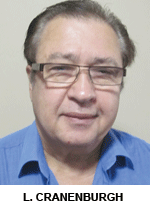 Whether seen from the viewpoint of nation-building or the perspective of an on-the-ball school principal, it makes good long-term sense to invest in high quality teachers who add value to students, attract funds and perhaps even endowments.
Whether seen from the viewpoint of nation-building or the perspective of an on-the-ball school principal, it makes good long-term sense to invest in high quality teachers who add value to students, attract funds and perhaps even endowments.
Based on a synthesis of 500,000 studies of student achievement in the United States conducted by Prof. John Hattie, including my own training of expert teachers in Australia over 15 years, it is patently clear that expert teachers make a profound difference to students’ learning outcomes — by 29-74 percent — by providing challenges and developing deep learning capabilities, compared to experienced teachers.
The ability to identify the attributes of expert teachers enables principals, heads of departments or school boards to provide meaningful professional development programmes to would-be experts. Extensive classroom-based research under controlled conditions in American and New Zealand schools indicates that students’ learning outcomes can improve by 50 percent given supportive home environments. Other factors such as class size and school environment account for 5-10 percent, while expert teachers can improve learning outcomes by up to 30 percent. In short, high-end infrastructure and fully-wired classrooms which raise tuition fees, play an insignificant role in improving students’ learning achievements.
The critical difference between expert and experi-enced teachers is that the former are better at guiding students’ learning. On the other hand, veteran teachers tend to be less tolerant of students’ errors and focus on teacher-centric classroom solutions. Therefore, I encou-rage expert or wannabe expert teachers to adjust to the ability, backgrounds and experience of their students which in turn creates optimal learning conditions.
Another quality that distinguishes expert teachers is that they are more astute at assessing students’ learning capabilities and providing feedback. While experienced teachers can maintain classroom discipline, expert teachers filter, monitor and interpret events with insight before providing constructive feedback to their charges. On the other hand with their emphasis on maintaining classroom discipline rather than improving learning outcomes, experienced teachers unwittingly create a psychological barrier between themselves and their students.
Another significant difference between the two types is that expert teachers are not goal-fixated, while experienced staff tend to focus on short-term objectives. The former motivate their students to strive for mastery of their subjects, self-regulation and set challenging goals. The latter focus on examination success and external regulation of students.
With a clear preference for nurturing and developing expert teachers, I advise them or aspirant experts to encourage students to question and interact with faculty making the learning process joyful and engaging. In sharp contrast, in classes run by experienced or novice teachers, it is the latter who do all the talking while students listen.
Perhaps one of the most significant ways of transfor-ming an experienced teacher into an expert which I have found useful is to develop their abilities to encourage deep instead of shallow, learning. The latter is about learning content and doing what is needed to pass examinations. On the other hand, expert teachers engage students in tasks to which they relate, to develop fresh insights.
Incredible india erects many hurdles in the paths of headmasters and teachers keen to apply research pedagogies in a moribund education system. The research studies of Vimala Ramachandran, founder of the Educational Research Unit, New Delhi, provide proof that Indian teachers tend to be unmotivated, have little incentive to excel, are preoccupied with moonlighting and lack the training to deal with classroom conditions in India’s 1.26 million schools.
However, Ramachandran acknowledges that 25-30 percent of teachers are highly motivated. Therefore, my approach in developing expert teachers is to identify the highly motivated and ‘innovate selectively’ by developing their expertise.
The role of the head teacher in transforming experienced into expert teachers is critical. Headmasters should not only be role models but also provide the support needed to develop such teachers. I ensure this support is given by training expert teachers who then act as mentors or ‘master teachers’ and train groups of aspiring expert teachers.
The incentive for school boards and managements is that if their school has a cohort of certified expert teachers, it is a marketing strategy far more effective than investing heavily in infrastructure, buildings, 21st century classrooms and extensive playing fields. While enabling infrastructure is a necessary condition of improved learning outcomes, it is an insufficient condition.
Consequently the litmus test of an excellent school is its ability to strike the right balance in apportioning available resources for infrastructure development and high quality teacher training to transform faculty into expert teachers.
(Lionel Cranenburgh is a former professor of English in Mysore University and currently CEO of an expert teachers training company in Western Australia)